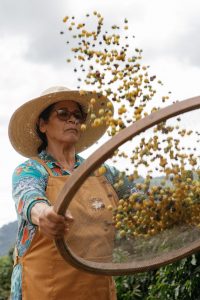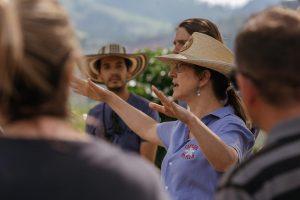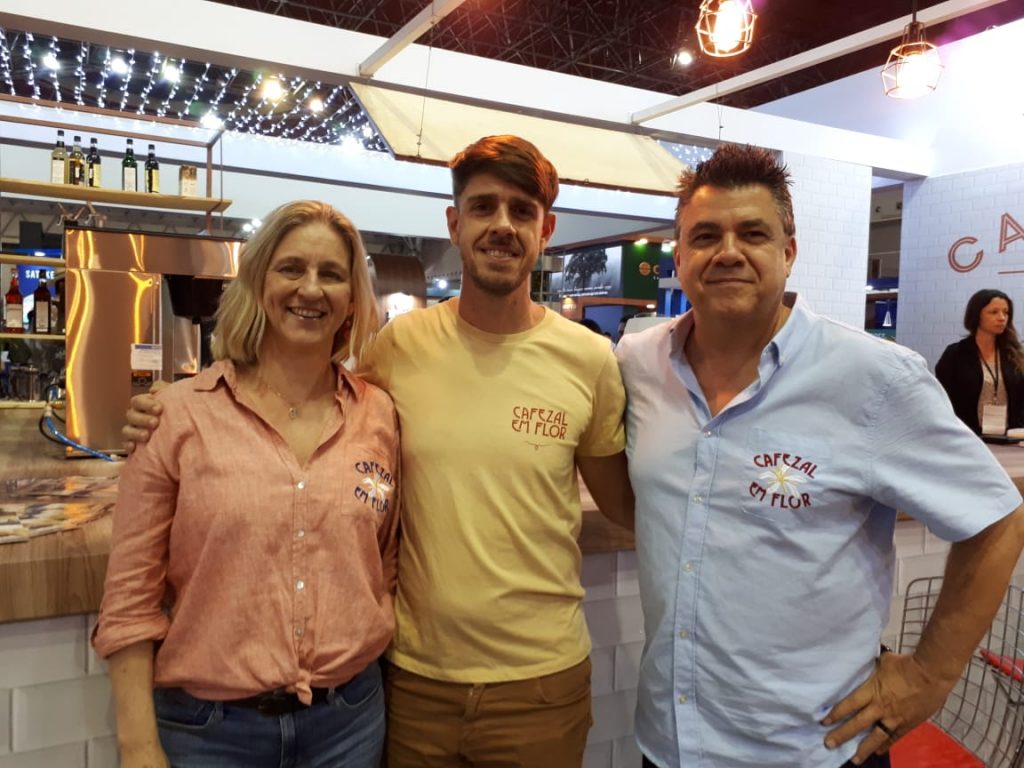Belo Horizonte – The Bichara family’s history with coffee goes a long way back. Tuffi Bichara’s grandfather moved in from Lebanon and settled in the Vinhedo, São Paulo area as a traveling salesman who’d sell his goods to Italian coffee growers. But it wasn’t until 1999, when Tuffi and his wife Marcia, decided to switch cities and lifestyles, that coffee became part of the family’s day-to-day.
Marcia holds a degree in History and Tuffi, in Agrarian Sciences, but as they came to Monte Alegre Azul, in the so-called São Paulo Water Circuit area, they had agritourism in mind. “We had a desire to do something different, something that was sustainable and involved agritourism. We knew that neither agriculture nor tourism would stand alone,” recalls Marcia.

The outcome of their efforts was the lodge-cum-farm Cafezal em Flor (or Coffee Fields in Bloom). Their 20 years working with agritourism led to an invitation to lecture during the International Coffee Week, which wrapped up this Friday (22) in Belo Horizonte, Minas Gerais. Their presentation covered business opportunities in coffee farms as a novel tourism attraction. “This is not a fantasy world. Visitors are present with their bodies. They feel the warmth, the scents… It moves people,” notes Marcia.
At the property, they built facilities with reused construction material. Cottages, a country food restaurant and lots of crops. And then they began welcoming travelers who were interested in the experience. “We kept investing and studying. We came up with the ideas and drew inspiration from wine tourism, for instance. We’re environmentalists, so we have a true concern with the area. Our farming is low impact and we’re certified by Cooxupé (the Guaxupé Coffee Farmers Cooperative),” says Tuffi.
The couple now works with special coffees together with their son Mateus Bichara, who’s pictured above with their parents. In the city where people used to work only with coffee with poorer quality and sold it cheaper, the couple also bet on high-quality beans. They were pioneers in bringing new varieties of the plan, processes, and machinery.

In the beginning, neighbors were bewildered, but the couple says that this has also pushed forward a local change. “When we bought a roaster, they came to see it. Many bought it too,” Tuffi remembered.
The Bicharas’ production is focused on the domestic market. “Now, our coffee is sold at out inn and other sites. We’re creating an e-commerce now. Our dream is exporting it,” Marcia said. For them, a project leads to another. “We’re small, we don’t have a large structure for production. Tourism has helped bringing the consumer to us,” the businesswoman pointed out.
*The journalist traveled by invitation of the International Coffee Week.
Translated by Gabriel Pomerancblum & Guilherme Miranda




